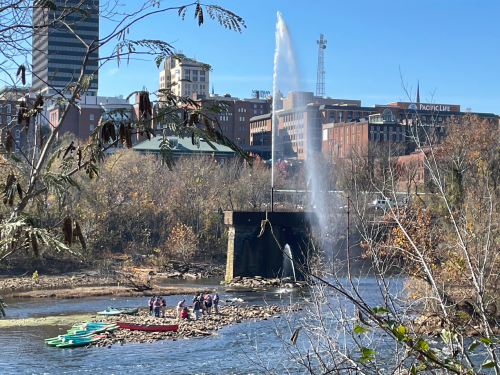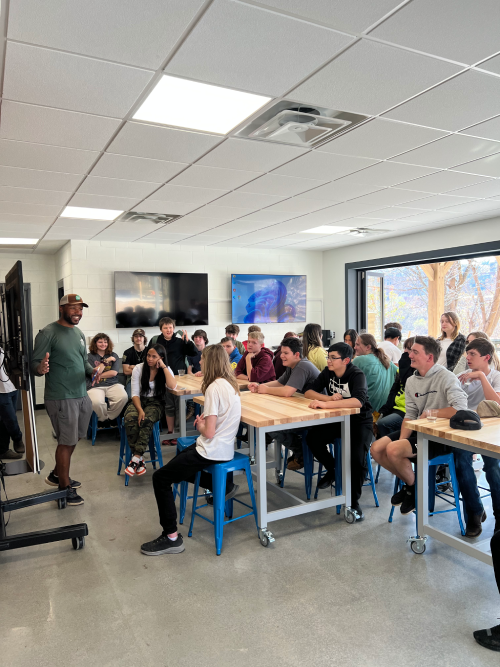Upper James River Education Center
Since 2013, the James River Association has been a committed partner to the greater Lynchburg community. To enhance our impact, we established the Upper James River Center—a dedicated space for river learning and recreation. Situated across from historic Downtown Lynchburg in Amherst County’s Riveredge Park, this center serves as a gateway to exploring and safeguarding our invaluable waterway.
Interested in scheduling School trips? Learn more about our education program.

Upper James River Center Location
The Upper James River Center, located in Amherst County’s Riveredge Park, is strategically located across the James from historic Downtown Lynchburg and below Scotts Mill Dam, the last of seven dams thereby allowing extended paddle trips down the James.
Through a partnership with Amherst County and support from the community, JRA established the Upper James River Center and a new river access point to enhance its school-based and public river programs. This Center serves as a hub for river activities, advancing our vision of a fully healthy river supporting thriving communities. The center strengthens the Lynchburg region’s connection to the James River, helping it capitalize on the benefits that the river can offer.

Key Features of the Upper James River Education Center

- Modern Classroom: State-of-the-art technology and interactive learning tools.
- Flexible Learning Spaces: Indoor-outdoor classroom with a covered patio.
- Riverfront Connection: Improved views and connection to the James River.
- Outdoor Pavilion: Multi-purpose space for events and outdoor learning.
- Sustainable Landscaping: Rain gardens, conservation landscaping, and energy-efficient features.


